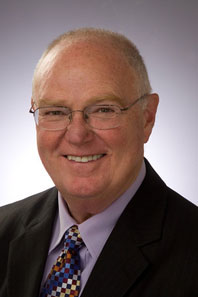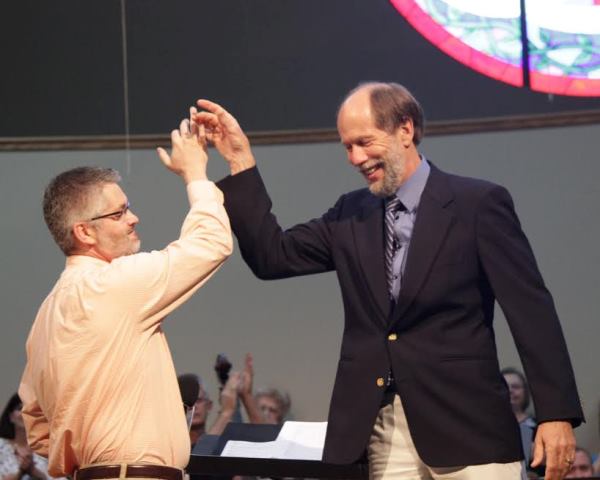By Jeff Brumley
Recent news that the church choir is in rapid decline troubled a number of Baptists, a number of whom took to Facebook recently to post evidence that choral music has – or at least should have – a continuing place in American congregations.
One of them was Kevin Glenn, the senior pastor at Memorial Baptist Church in Columbia, Mo., who says his main objection to the Religion News Service article was a source’s claim that churches may either keep their choirs or appeal to younger generations.
“I always get antsy when presented with either-or options,” said Glenn, who served several years as a music ministers before becoming a lead pastor.
“I fear that some will read that and some small church…will say ‘it’s vanishing, so let’s not try.’”
Statistics: choirs diminishing
That source was is James Merritt, a former Georgia megachurch pastor who went on to plant a smaller congregation intentionally devoid of a choir.
As the RNS story pointed out, that put Merritt’s church right in the middle of a trend away from choral music in American churches.
Citing statistics from the National Congregations Study, the article reported that choirs are declining across the Protestant family of churches. Only 40 percent of white conservative evangelicals report choirs in their services – a 63 percent decrease in the last 14 years.
Liberals and moderates are seeing similar decrease: from 78 percent to 50 percent between 1998 and 2012.
The only groups seeming to withstand the trend are African American Protestants and Catholics. About 90 percent of blacks report choirs in their churches as do 76 percent of Catholics.
‘Doing it…because it’s easier?’
Music leaders and church consultants who track the issue say Baptist congregations are no exception to the trends. But they diverge on either the severity of the movement or whether it’s good or bad news for Baptist and other congregations.
They also disagree on whether anything can be done to stem the tide away from choral music – especially since choral music has become less popular in American culture as a whole, said David Keith, dean of the Townsend School of Music at Mercer University.
“You’ve seen a change in the school systems — in arts education of the arts — and a somewhat dumbing down of that curriculum,” Keith said.

While there are Baptist mainstays like Broadway Baptist in Fort Worth, First Baptist of Macon and many others, Keith said others are succumbing to the tug they are feeling to cater musically exclusively to younger Christians. Sometimes that might be the right thing to do – but it’s the wrong way to go if the elimination of a choir is an attempt to be hip, Keith said.
“The trouble comes when we try to change the DNA of the church, when we’re trying to make a church something that it’s not.”
It’s also understandable if churches don’t want to shoot for the “top shelf” of music, which is represented by choirs and the extra practice and skill they require, Keith said.
“It’s easier to have a bass player and a drummer and a keyboard player,” he said. “My question is, am I doing it because it’s easier? Whoever said the Christian life is easy?”
The bottom line is that choirs can still draw people to Christ through their leadership in worship. Praise and worship bands and other contemporary forms of music clearly can do that, too.
“You have to be happy that there is a multiplicity of styles available,” Keith said.
‘The whole story’
But the worship blog site “Ponder Anew” posted a response to the RNS article saying it failed to tell “the whole story.”
The post agreed that many churches have ditched choirs, but said it overlooked that “there are many churches in which the choral art still grows and flourishes.”
Churches should keep their choirs, according to the post, because they, among other reasons, encourage good singing throughout congregations and can be avenues into the faith for some outsiders who participate.
They can also enhance the experience of worship. The blog said “when we look up and see a mini-congregation of faces looking back at us, we’re reminded that we’re not alone, that we’re there to be part of a very special communion.”
‘Choirs…not God-ordained’
Despite all those and other benefits, many churches wonder if choirs are still relevant, said Eddie Hammett, author, consultant and president of Transforming Solutions.
Whether through Skype or face-to-face meetings, Hammett said he interacts with at least 15 different churches around the nation every month.
The choir question, he said, “comes up just about everywhere I go.”
In some cases, Hammett said he advises them to consider why they are reluctant to let go of their choirs.
“It’s almost like some of them worship the form and the traditions and the rituals more than they do Jesus,” he said. He reminds them that “choirs are man-made, not God-ordained.”
He reminds them also that ministry has become so contextualized today that it forces congregations to determine how they are to best reach the communities living around them.
And in some cases, the answer may be choral music as the core of worship, he said.
“Some can do the choir and do very well, then there are other contexts where the demographics have shifted and preferences have changed.”
One context where choirs continue to thrive is multisite churches, Hammett said. In those situations, the church can designate one location for praise and worship and another for choral or other musical styles.
“Or it might be different styles at different times, on a different day or in a different building,” he said.
Hammett said the debate over the relevancy and future of church-based choral music is mostly American issue. But it’s an intense one that has many congregations scratching their heads.
“They want to preserve it and they like choral music,” said Hammett, who also consults through the Cooperative Baptist Fellowship of North Carolina. “But they’re also trying to reach the younger generation – and they are really struggling with ‘how do we do both?’”
‘Both-and approach’
Glenn said he’s witnessing that same debate around the nation and concedes that most are choosing to jettison the choir.
But a better answer for many of them may be to pursue multiple musical forms instead of just one.
At Memorial, choir, praise band and orchestra not provide outreach opportunities for young and old worshipers interested in varied different musical forms.
“We do a both-and approach where the choir will do a classical piece in a service where we also sing (contemporary) numbers, and mix it in with hymns and spirituals.”

The approach at Memorial, where attendance ranges from 400-500 on Sundays, may not be feasible for smaller congregations. But Glenn said he served as the music minister at several smaller churches where he discovered low-cost ways to seat a choir on Sundays.
He has seen churches with less than 300 attendance reliably field choirs of 12-15 people.
“I have been in megachurches, too, that have a good choral ministry, and small churches will not hold a candle to that,” Glenn said. But with the right music and direction the smaller choirs can still lead worship – and still thrill the family members and friends of those singing.
“You just have to adjust your expectations based on your context,” He said.
